Dear colleagues,
In today's newsletter we will share with you our highlights from the SFRR-E Annual Meeting, and update you on our recent and next redox webinar before our summer break (we will be back in September to announce the next webinar round to you). At the end of the newsletter you can also find a collection of upcoming events with important deadlines and some suggestions of interesting redox reads published recently.
Highlights from the SFRR-E Annual Meeting
From the 6th to the 9th June the Annual Meeting of the SFRR-E took place in Vienna. It was a great conference with inspiring talks by outstanding speakers and it also was a perfect occasion for networking between early career researchers.
The ECR subcommittee organised two different activities especially for young researchers. First of all, we want to thank everybody that attended. It was a pleasure seeing so many people willing to participate and have some fun before the opening of the conference.
One of the activities that we organised was the “Meet the Professor” session that was open to everybody. We were delighted to count on so many professors that answered straight as an arrow all the tricky questions that you sent to us through our social media channels. Some answers made us laugh loudly while others made us reflect for days. Would you prefer to publish one excellent paper or several ordinary papers? Do you value quality over quantity? Do you think a mentor is important for career development? (hint: check out our mentoring program!)
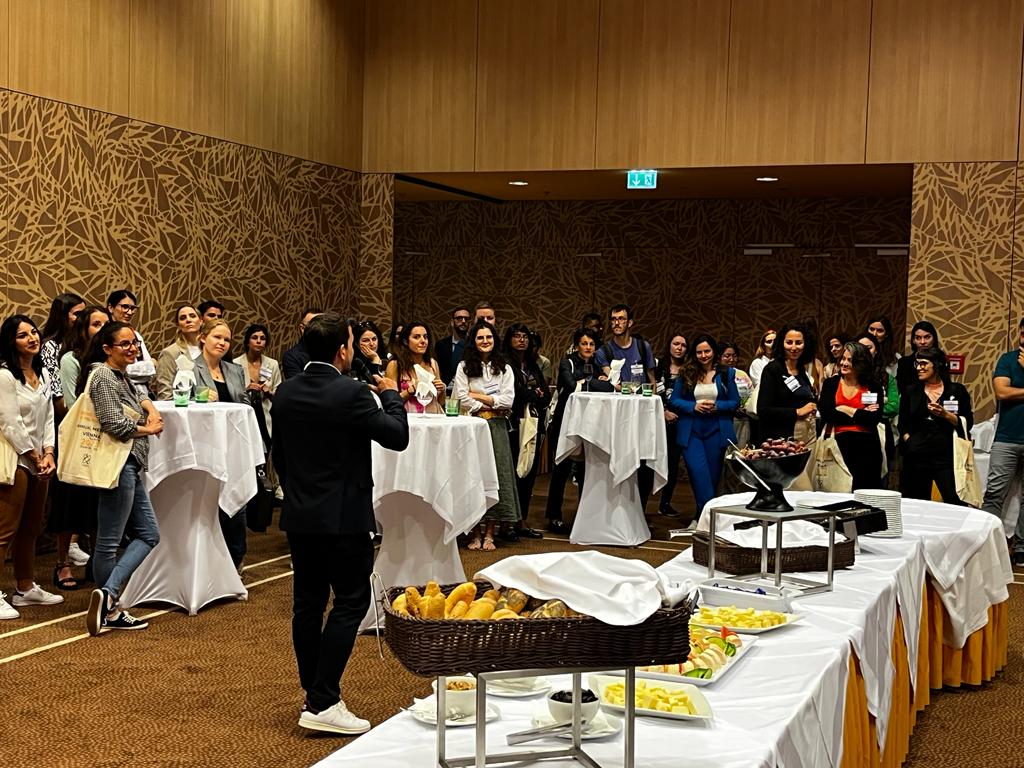
![]() After the Meet the Professor session, we had a Networking event aimed at ECRs only. We know you loved our redox stickers, don’t worry we will bring them again next year in Istanbul! During the networking event, we met lots of other researchers at the same career stage while enjoying some drinks and we came out with the most bizarre titles for a research paper that one could ever imagine. One of the ideas ECRs came up with: “High resolution microscopy reveals lying-induced generation of hydroxyl radicals in the brain which promotesliver-myocyte communication through Pinocchio protein human patients affected by nose hypertrophy”. The authors of the most original paper titles won science-styled pens to use in the lab!
After the Meet the Professor session, we had a Networking event aimed at ECRs only. We know you loved our redox stickers, don’t worry we will bring them again next year in Istanbul! During the networking event, we met lots of other researchers at the same career stage while enjoying some drinks and we came out with the most bizarre titles for a research paper that one could ever imagine. One of the ideas ECRs came up with: “High resolution microscopy reveals lying-induced generation of hydroxyl radicals in the brain which promotesliver-myocyte communication through Pinocchio protein human patients affected by nose hypertrophy”. The authors of the most original paper titles won science-styled pens to use in the lab!
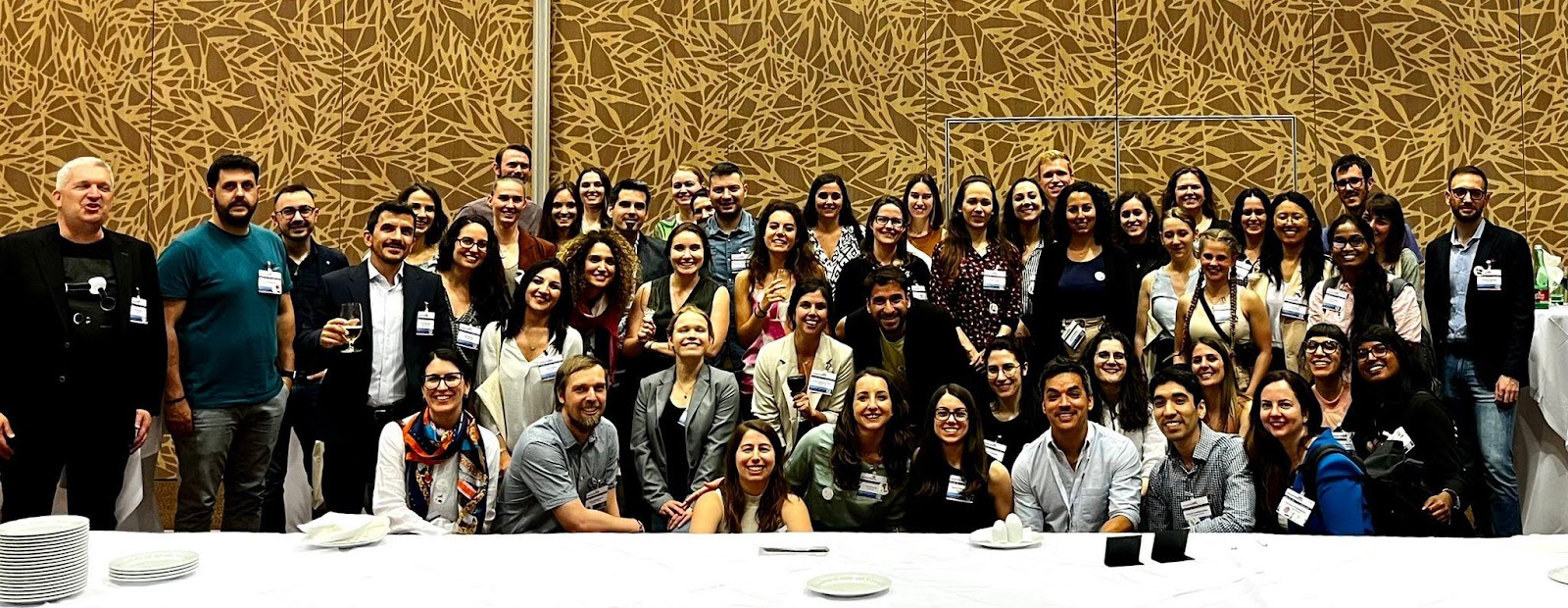
We had an incredible time together during the SFRR-E conference and we also got to acknowledge the young researchers that presented great science at the meeting. The SFRR-E gave 8 awards to Palina Nepachalovich (Germany), Sara Marchese (Italy), Vanesa Cepas-López (Italy), Aseel Saadi (Israel), Nejra Cosis Mujkanovic (Austria), Susana Delgado Martín (Spain), Pablo Marti-Andres (Sweden) and Tim Baldensperger (Germany). Congratulations to all the awardees!!
We are already looking forward to seeing you again next year; the annual SFRR-E meeting will take place 5-7 June 2024 in Istanbul (https://www.redoxistanbul2024.com)!
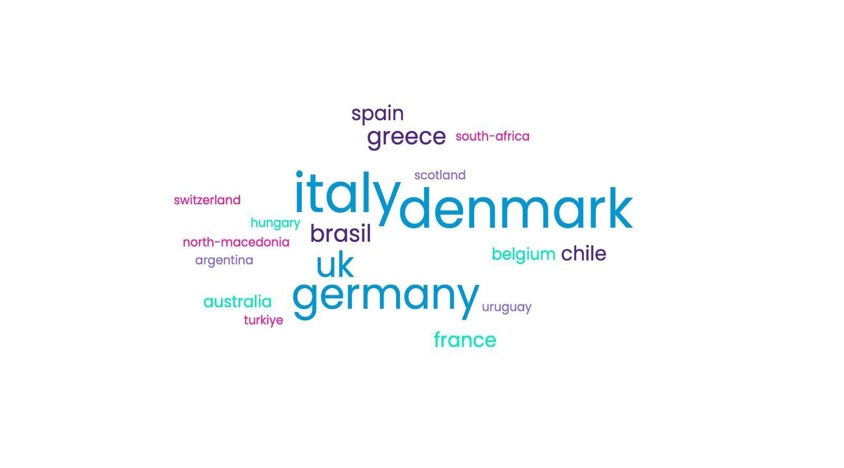 Webinar series “Emerging leaders in redox biology”
Webinar series “Emerging leaders in redox biology”
We would like to thank you all for your incredible welcome to our new Webinar Series. For the first half of the year we counted on amazing speakers: (Haopeng Xiao, Lasse Lorentzen, Louise Hecker, Eduardo Balsa, Jörg Mansfeld, Chrisa Xirouchaki and Flávia Rezende). We reached more than 120 attendees per date from 19 different countries. It was such a huge success that we have already planned the monthly webinars for the second half of the year.
Before we introduce our next webinar, let’s take a recap of our recent webinar on the 4th of July 2023 and we were so lucky to have the following expert talks on computational modelling in redox biology:
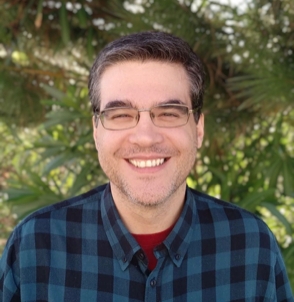 Rui Travasso, PhD
Rui Travasso, PhD
CFisUC, Department of Physics, University of Coimbra, Portugal
Rui received his PhD in Theoretical Condensed Matter Physics from the University of Manchester in 2003. He has worked at the Universities of Pittsburgh and Lisbon, where he has studied the dynamics of pattern formation in polymeric melts and protein folding. He is currently at the Physics Department of the University of Coimbra developing computational models of biological systems, with a focus on the study of hydrogen peroxide diffusion, cell movement, cell adhesion and vascular growth.
Localised H2O2 gradients in the vasculature lumen and in the cellular cytoplasm
Dr. Travasso presented modeling data about H2O2 channeling in the vascular lumen and redox signaling processes after diffusion in cells. H2O2 production, accumulation and transport is completely different from capillaries to vessels. However, when H2O2 enters a cell, signaling is mediated by localized redox relays whereby peroxiredoxins are oxidized to sulfenate and disulfide forms at H2O2 supply sites.
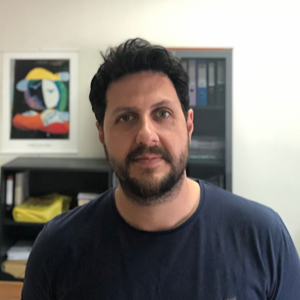 Nikos Margaritelis, PhD
Nikos Margaritelis, PhD
Department of Physical Education & Sports Science, Aristotle University of Thessaloniki, Greece
Nikos received his PhD in Kinesiology in 2017 and is currently an Assistant Professor in Research Methods & Data Analysis. His research interests include the role of reactive species in exercise responses and adaptations, and the effect of antioxidants as ergogenic or therapeutic aids. His work currently focuses on applying research methodologies and analyses that relate to inter-individual variability, antioxidant deficiencies and personalized redox biology.
Personalized redox biology: magic bullet or shot in the dark?
Dr. Margaritelis presented some central but underappreciated concepts and tools in personalized biology. Personalized redox biology presumes that a wide inter-individual variability (i.e. differences between individuals) exists in the responses after a redox treatment. Yet, this belief is not based on robust methodological and statistical evidence.
If you missed these talks, you can find a recording of the webinar on the society’s intranet.
Our next webinar will be on 1st August 2023 at 15:00 and we happy to announce the following talks: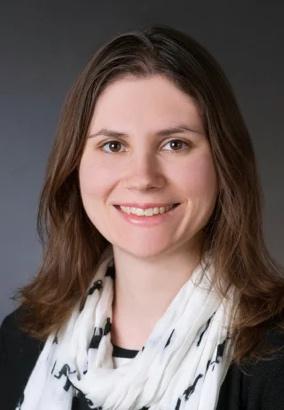 Fluorescent protein-based redox biosensors: the aspects less considered
Fluorescent protein-based redox biosensors: the aspects less considered
Daria Ezerina, PhD
Department of Bio-engineering Sciences, Vrije Universiteit Brussel
Having first been introduced to thiol chemistry and redox biology during a lecture by Tobias Dick during her MSc studies at the University of Heidelberg back in 2010, Daria has worked in the field ever since. In 2012 Daria obtained her MSc degree with a thesis on the role of yeast glutaredoxins in cytosolic glutathione homeostasis performed in the lab of Tobias Dick (German Cancer Research Center (DKFZ), Heidelberg) under the guidance of Bruce Morgan. She stayed in the same lab for her PhD, graduating in December 2017 defending a thesis delineating the antioxidative mechanism of N-acetylcysteine. In February 2018, Daria moved 450 km North-West to join the lab of Joris Messens at the VIB-VUB Center for Structural Biology to work on the generation of fluorescence-based biosensors for the real-time detection of the dynamics of both redox and non-redox metabolites in living cells.
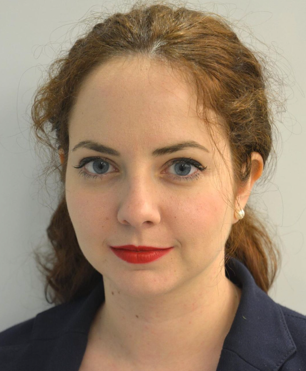 Proteome-wide tagging with genetically encoded redox biosensors to identify highly-located oxidation events
Proteome-wide tagging with genetically encoded redox biosensors to identify highly-located oxidation events
Paraskevi (Pari) Kritsiligkou, PhD
German Cancer Research Center (DKFZ), Heidelberg, Germany
Pari obtained her degree in Biology from the University of Crete, working with Kostas Tokatlidis on oxidative protein folding in the mitochondria. For her masters, she studied Biochemistry at the University of Oxford, working with Stuart Ferguson and Christina Redfield on the disulfide bond formation system in bacteria. She joined the Wellcome Trust-funded PhD program “The Dynamics of Cellular Pathways” at the University of Manchester, where she explored redox signalling cascades using tadpoles, cell lines and yeast as model organisms. During her thesis work with Chris Grant, Pari investigated how redox regulates organelle homeostasis, including uncovering an unexpected role for a Gpx in the mitochondrial intermembrane space. Her continued passion to uncover new redox-regulated signaling cascades led her to join Tobias Dick's lab at the German Cancer Research Center in Heidelberg, Germany. In her postdoctoral work Pari has used tethered biosensors to reveal highly localized redox microenvironments.
How can I join the webinar?
https://us06web.zoom.us/j/94521633658?pwd=VzNUTzlJTkQzZ0JmeFc3bXcrNmxrdz09
Meeting ID: 945 2163 3658
Passcode: 329652
More information about the ECR Subcommittee can be found on the SFRR-E website (https://www.sfrr-europe.org/index.php/sfrre/ecr-early-career-researcher), while regular updates can be found on Twitter (@SFRR_Europe) and Instagram (@sfrr_ecr). For any question or suggestion you might have, you can contact us via email:
Have a great summer and hope to see you at our next webinar,
The ECR subcommittee
Upcoming events:
12th International Human Peroxidase Meeting
August 30 - September 2, 2023
Location: Budapest, Hungary
Further information: https://peroxidase2023.org
8th World Congress of Oxidative Stress, Calcium Signaling and TRP Channels
September 5-8, 2023
Location: Isparta, Turkiye
Further information: http://2023.cmos.org.tr
5th Inflammatory Skin Disease Summit. The Translational Revolution (organized by the Austrian Academy of Sciences)
November 15-16, 2023
Location: Vienna, Austria
Further information: https://www.isds2023.org
SfRBM - SFRRI 2023
SfRBM 2023 & SFRRI 21st Biennial Meeting
15–18 November 2023
Location: Punta del Este, Uruguay
Further information: https://sfrbm.org/meetings/sfrbm-sfrri-2023
Abstract deadline: August 15, 2023
Interesting Redox Reads:
Environmental and behavioral regulation of HIF-mitochondria crosstalk
Burtcher, J. et al – Free Radical Biology and Medicine
Nox4 as a novel therapeutic target for diabetic vascular complications
Wang, D. et al – Redox Biol.
Emergence of (hydro)persulfides as suppressors of lipid peroxidation and ferroptotic cell death
Wu, Z. et al – Curr Opin Chem Biol
Free radicals and antioxidants: appealing to magic
Nikolaidis, M. G. & Margaritelis, N. V. - Trends Endocrinol Metab
Call for papers:
50 years of research excellence in the redox field
Deadline: submit your manuscript before 1 September 2023
More information:
https://www.sciencedirect.com/journal/redox-biochemistry-and-chemistry/about/call-for-papers#christine-winterbourn-50-years-of-research-excellence-in-the-redox-field
Exercise-induced reactive oxygen species as modulators of epigenetic machinery
Deadline: submit your manuscript before 1 December 2023
More information:
https://www.sciencedirect.com/journal/free-radical-biology-and-medicine/about/call-for-papers
